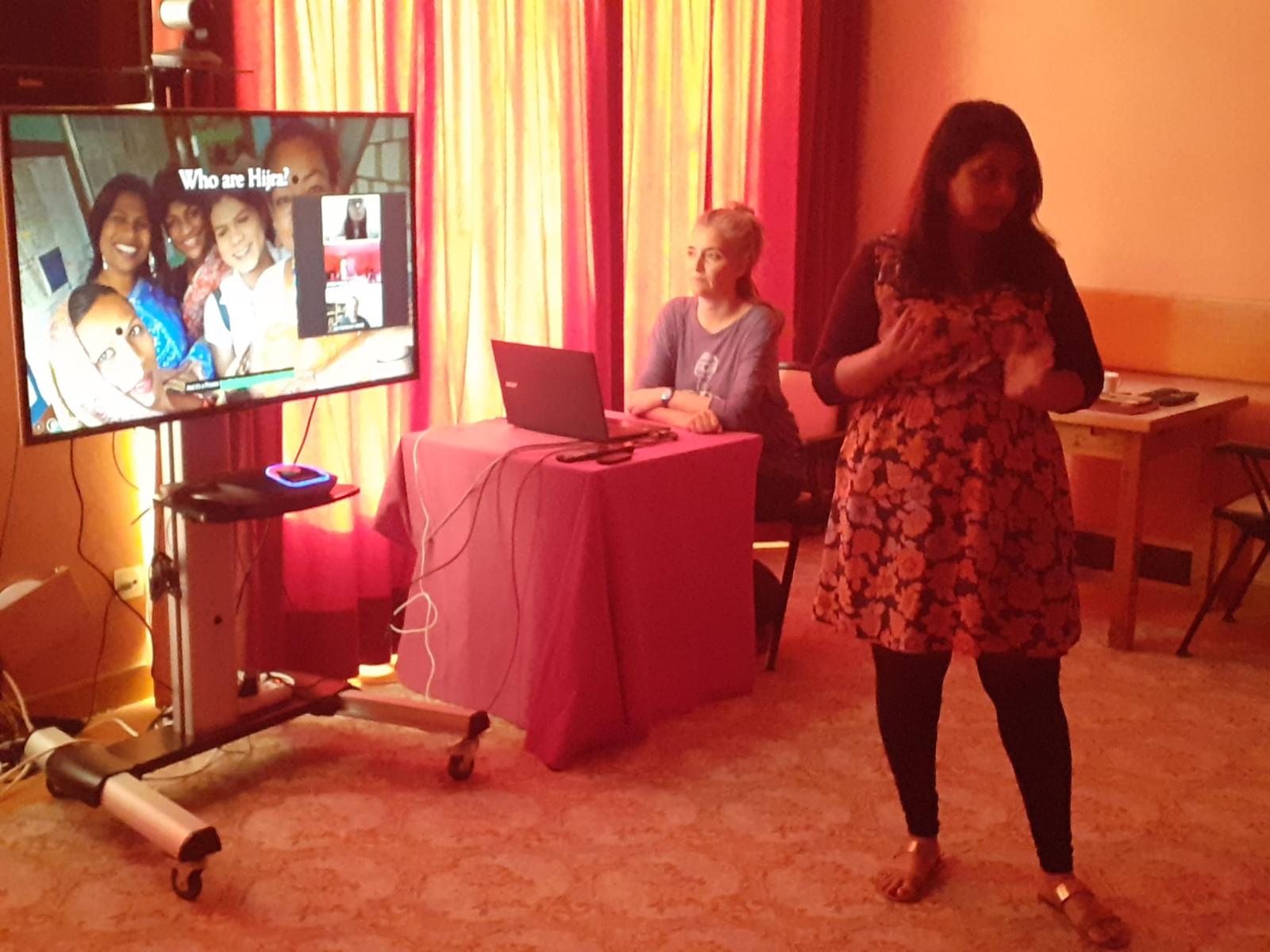Collective residencies / Migration and refugee movements in the 21st century / Olot
SAMEENA AZHAR
From Tuesday, 1 February 2022 to Friday, 11 February 2022

Bio
Sameena Azhar is an Assistant Professor at the Fordham University Graduate School of Social Service. She has nearly two decades of clinical and research experience in the fields of mental health, addiction and HIV treatment. Sameena completed a PhD from the University of Chicago, a Master’s in Social Work and a Master’s in Public Health from the University of Pennsylvania, and a BA in Philosophy from UC Berkeley. She is a licensed clinical social worker in the states of California and Illinois. Her research has been funded through the Substance Abuse and Mental Health Services Association/Council on Social Work Education's Minority Fellowship Program, the Foreign Language and Area Studies Fellowship in Urdu through the U.S. Department of Education, Ford Foundation, and the National Institute of Drug Abuse. Sameena plays jazz piano and grows orchids.
Project
I seek to focus my time at Faber on my research project, investigating the impact that migration from Afghanistan has had on khwaja sira communities in Pakistan. My research team and I interviewed 45 khwaja sira in Pashto on their experiences during the pandemic. Khwaja sira are a group of third gender or gender-nonconforming people in South Asia. I am interested in how khwaja sira have experienced violence and discrimination, how they have been able to access medical care, and how they have earned a livelihood in the context of stay-at-home orders, restricted movement, and increased migration of Afghan refugees.
Faber Residency provides a truly unique experience for writers, scholars, artists, and activists to come together and share their work in a particular thematic area. I participated in the February 2022 residency on Migration and Refugee Movements. Due to the limitations of the COVID-19 pandemic, we only had six residents in person in Olot and another group of participants who joined us by Zoom. But having a small group of closely connected colleagues in Olot was truly a strength for the residency. The greatest benefit of being in Olot is the interdisciplinary nature of the residency. As an Assistant Professor in Social Work at the Fordham University Graduate School of Social Service in New York City, much of my professional experience involves engaging with other colleagues in the social sciences. Here I was able to interact with residents who worked on a number of issues impacting migration and refugee movements through multiple avenues, including art, poetry, journalism and activism.
I focused my time at the Faber Residency on writing manuscripts from my research project, investigating the impact that migration from Afghanistan has had on khwaja sira communities in Swat, Khyber Pakhtunkhwa (KP), Pakistan. Khwaja sira are a group of third gender or gender-nonconforming people, also referred to as hijra in South Asia. In 2016 KP became the first South Asian province to have a third gender rights policy. Despite this progressive human rights policy, discrimination and social marginalization of the khwaja sira community remains intense. Furthermore, research on gender-nonconforming communities in Pakistan remains relatively scarce. During my time in Olot, I worked on data analysis from my research study, examining the ways in which khwaja sira in KP have been impacted by the COVID-19 pandemic. In particular, I was interested in how khwaja sira have experienced violence and discrimination, how they have been able (or unable) to access medical care, and how they have earned a livelihood in the context of stay-at-home orders, restricted movement and increased migration of Afghan refugees. To address these questions, my research team and I interviewed 45 khwaja sira in the language of Pashto on their experiences during the COVID-19 pandemic between 2020 and 2021. Interviews were digitally audio-recorded, then translated and transcribed into English. With a team of six coders, we conducted thematic content analysis on the transcripts of these interviews. By the completion of my residency at Faber, I was able to write a working draft of the first manuscript from my research project. With the competing demands of a faculty position in academia, having dedicated time to devote to the completion of a manuscript has been incredibly useful. The feedback I have received here from my colleagues has helped me to reflect on and refine my own work. I am indebted to Faber for their generosity in providing such a unique space to develop and grow as a scholar.

